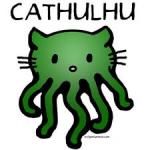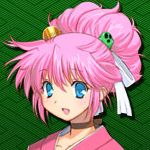'Anything but innocent
It's no longer enough to say, "I'm not racist." We need to be anti-racist, and that's harder. To be anti-racist, we must look at our everyday routines, our communities, and our own families—eliminating even some of the things that have brought us joy as children so the next generation can be healthier and stronger. One of those things is nursery rhymes, many of which are deeply embedded with racism.
[...] by age four, children recognize basic racial stereotypes. Often, these stereotypes are so normalized, it's easy to misidentify them and thus dismiss them as historical or eliminated when, in fact, they continue to circulate in new forms in children's culture. [...] racist tropes often "hide in plain sight." In children's nursery rhymes, an obviously racist, sexist, or anti-Semitic term might have been replaced with a word considered less offensive, but the new term can be just as triggering to BIPOC (Black, Indigenous, and People of Color) as the original epithet.
[...] protect your child's developing mind from racist narratives like the eight listed below.
Ten Little Monkeys
You have likely sung some version of this nursery rhyme to your children, teaching them to count backward and also just to amuse them[...] [It's] derived from a nursery rhyme called "Ten Little N**gers," which counted down by illuminating ten different horrible ways for Black boys to die. [...]
Today, parents use the same rhythmic language of this rhyme in "Ten Little Monkeys." But subbing in the word monkeys not only fails to redress the wrongs of the original language, but it's also traumatizing in a different, though related, way. "Children's literature and culture helped promote the lie of Black animality by presenting African Americans as apes or monkeys, either via racist caricature or via monkey characters who behaved like they imagined African Americans behaved," [...] "In order to justify slavery, slavers propagated the libel that people of African descent were inherently more animal, less civilized, and thus less human." In the end, using the word monkeys doesn't eliminate racism from the nursery rhyme—it simply reestablishes it.
Eeny Meeny Miny Mo
[...] children all around the world have some variation of this childhood chant, which is used in America to decide who will be "it" in games like tag. But until recently, the American version of "Eeny Meeny Miny Mo" used the N-word. As late as the 1980s in some schoolyards, children rhymed about catching "a n**ger by the toe." The more benign "tiger" became popularized over time, but Nel says that change doesn't get rid of this rhyme's inherent hate speech. "Though I, too, heard the 'tiger' version when I was a kid, [...] the rhyme has such a strong association with the N-word that it should be retired—permanently. Even using the 'tiger' version may activate a traumatic memory for people of color."'
[...]
Oh, Susannah
While not a nursery rhyme, per se, this quintessentially American children's song also has troubling roots. It was written in the 19th century by Stephen Foster, the composer of "Camptown Races" and "Old Folks at Home" (better known as "Swanee River"), and [...] it was originally sung in "N**ro dialect." He adds that its second verse uses the N-word and treats the deaths of African Americans as a comical, silly event[...]
Artifacts of a deeply segregated, violent, and racist America no longer belong in our kids' libraries. They belong in history books and museums, so that future generations will never forget that even children's culture assisted White supremacy and helped maintain racism across generations and over hundreds of years. "The Star-Spangled Banner" also has racist lyrics, and it's one of the reasons some Black Americans don't celebrate the Fourth of July.'
[The modern version omits the second verse:
'I jumped aboard the telegraph and traveled down the river,
Electric fluid magnified, and killed five hundred [n-word].
The bullgine bust, the horse ran off, I really thought I'd die;
I shut my eyes to hold my breath—Susanna, don't you cry.']
'Short'nin' Bread
The economic exploitation and cultural theft of Black people has been so normalized over the past four centuries that many people don't realize how thoroughly racism is incorporated in everyday American life—in our everyday expressions and even in our food. [...] "Mamma's Little Baby Loves Short'nin' Bread," was originally titled "Mammy's Little Baby Loves Short'nin' Bread." But even with this change, Mammy and Mamma are so close in spelling and sound, it is nearly impossible to separate the two in this song that mocks African American language and confines Black women to White women's kitchens. [...] all of us remember that the song's main character is a Black "Mammy," and cultural memory runs deep.
[...]
Jimmy Crack Corn
Black children have been terrorized over the years by this song's explicit references to slavery, as it happily sings about the "ole massa gone away." While you'll still hear it today, this song was popularized in the 19th century and often used in blackface minstrel shows. [...] back in the day, it was also "performed in 'N**ro dialect' by White men in blackface."'
https://www.rd.com/l...c5-2qRJUz_Zkh18
'"Jimmy Crack Corn," also known as "Blue Tail Fly," might be a cheery, upbeat song, but its true underlying meaning is dark. [...] "Jimmy Crack Corn" gained resurgence in the 1940s as a folk song during the beginning of the American folk music revival. Since then, it has become a very popular children's song with many different covers and versions of it.
We all know the lyrics. "Jimmy crack corn an' I don't care / Jimmy crack corn an' I don't care / Jimmy crack corn an' I don't care / The Master's gone away." It's a very sing-song-y tune and makes you definitely want to sing along. [...]
[...] the song's backstory is about a black slave's lament over his white master's death from a horse-riding accident. Pretty dark, right? [...] the song can be interpreted as a celebration of the master's death. Additionally, the slaves even contributing to his death through deliberate negligence.
The story follows that the master went out on a horseback ride when the slave was supposed to follow along and brush away the blue tail flies from the horse. Well, the flies were definitely pesky that day. They bite the horse which causes it to panic. The horse then throws the master off into a ditch. The master breaks his neck. An investigation follows and the verdict puts the blame on the blue tail fly. As for the term "Jimmy crack corn and I don't care," this was often slang for sitting around and gossiping without a care.'
https://doyouremembe...ng-meaning-dark
Do Black children perceive the modern versions as racist? Will children think 'Monkeys' means 'Black people' if they haven't already been taught to think that? This is the text:
'Ten little monkeys jumping on the bed
One fell off and bumped his head
Mama called the doctor,
And the doctor said
No more monkeys jumping on the bed
Nine little monkeys jumping on the bed etc.'
IDK....
This post has been edited by Azath Vitr (D'ivers: 06 March 2021 - 05:02 PM
 Grief, on 01 March 2021 - 10:49 PM, said:
Grief, on 01 March 2021 - 10:49 PM, said:
 Help
Help


















